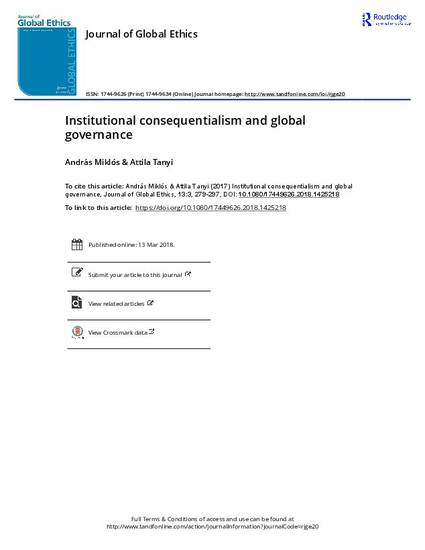
Article
Institutional Consequentialism and Global Governance
Journal of Global Ethics
(2017)
Abstract
Elsewhere we have responded to the so-called demandingness objection to consequentialism – that consequentialism is excessively demanding and is therefore unacceptable as a moral theory – by introducing the theoretical position we call institutional consequentialism. This is a consequentialist view that, however, requires institutional systems, and not individuals, to follow the consequentialist principle. In this paper, we first introduce and explain the theory of institutional consequentialism and the main reasons that support it. In the remainder of the paper, we turn to the global dimension where the first and foremost challenge is to explain how institutional consequentialism can deal with unsolved global problems such as poverty, war and climate change. In response, following the general idea of institutional consequentialism, we draw up three alternative routes: relying on existing national, transnational and supranational institutions; promoting gradual institutional reform; and advocating radical changes to the status quo. We evaluate these routes by describing normatively relevant properties of the existing global institutional system, as well as by showing what institutional consequentialism can say about alternatives to it: a world government; and multi-layered sovereignty/neo-medieval system.
Keywords
- consequentialism,
- institutions,
- global justice,
- institutional consequentialism,
- global governance,
- world government,
- neo-medievalism,
- state
Disciplines
Publication Date
Winter December, 2017
Citation Information
Attila Tanyi and András Miklós. "Institutional Consequentialism and Global Governance" Journal of Global Ethics Vol. 13 Iss. 3 (2017) Available at: http://works.bepress.com/attila_tanyi/33/
